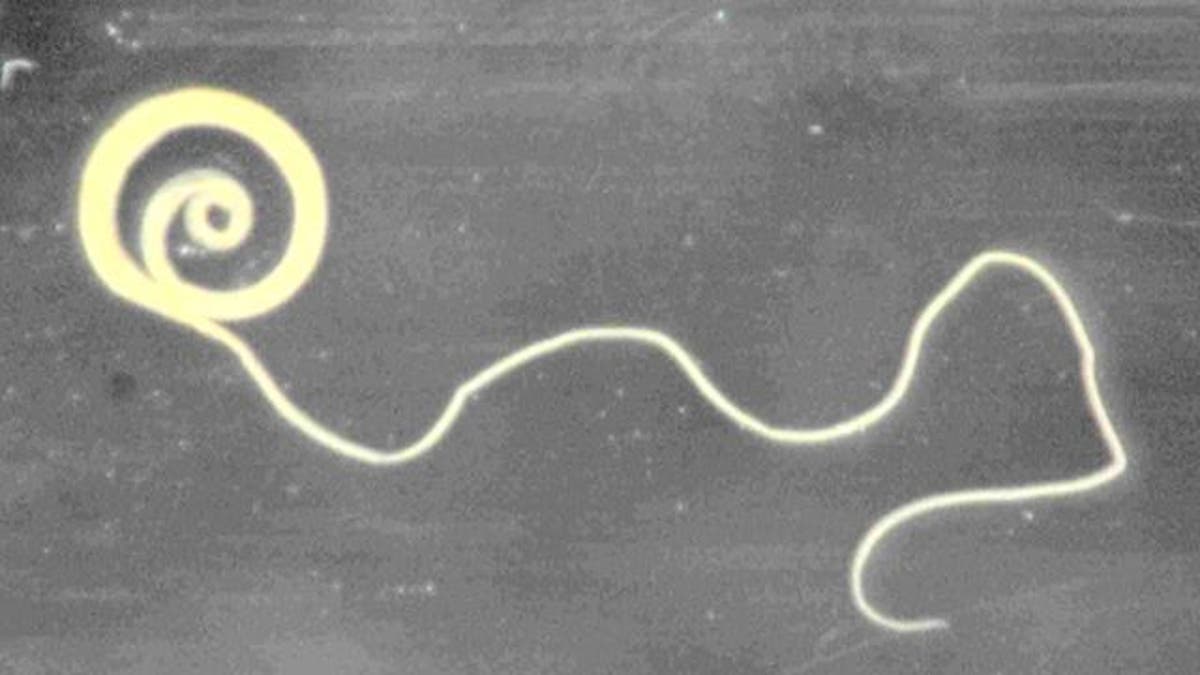
Helminth trichura, also known as whip worm.
A new study has revealed that two novel – and somewhat unusual – therapies may help treat symptoms in individuals with autism.
One involves using hot tubs to raise body temperature – and the other involves the ingesting of parasitic worms.
Detailed at the American College of Neuropsychopharmacology (ACNP) Annual Meeting, this research helps to support the theory that disruptions in the body’s inflammatory response may contribute to the onset of autism.
“There’s been considerable evidence recently suggesting that inflammation may play an important role in mediating neuropsychiatric symptoms,” lead author Dr. Eric Hollander, a professor at Albert Einstein College of Medicine in New York, told FoxNews.com. “There’s a hypothesis called the hygiene hypothesis, which claims that as people move from rural to urban areas, some of the gut flora that are present in rural areas are not present in urban areas, and that might be associated with some immune inflammatory illness.”
According to the Centers for Disease Control and Prevention, 1 in 88 children suffers from some form of autism spectrum disorder (ASD), and growing evidence suggests that the condition may be a result of an overactive immune system – which results in high levels of inflammation.
This theory is supported by the fact that about a third of autistic individuals show clinical improvement when they have a fever. In response to high body temperature, the immune system may release protective anti-inflammatory signals in the body, which may explain the effect on autism symptoms.
To test this idea, Hollander and his team tried to mimic a fever by placing children with autism in hot baths – one set at 98 degrees Fahrenheit and one set at 102 degrees Fahrenheit.
“When they were at 102 degrees for half hour, there was an improvement in autism symptoms ,” Hollander said. “Then when you look at repetitive behaviors and social communication, parents rated them improved at 102 degrees” – compared to 98 degrees.
In the second part of the study, the researchers examined the effects of treating 10 high-functioning autistic adults with Trichuris suis ova (TSO) – the eggs of the worm helminth trichura (whip worm). The helminth worm is a known parasite of pigs but not one of humans, so it doesn’t reproduce or cause illness in the human gastrointestinal tract. However, research has shown that worms learn to survive in humans by dampening the body’s inflammatory responses.
Previous research has shown that TSO can successfully treat some immune-related diseases such as Crohn’s disease, so the researchers were interested to see how the worm affected patients with autism. The study’s participants ingested 2,500 worm eggs in pill form every two weeks for a 12-week period. They were also given a placebo for another 12-week period in a randomized order.
“What we found was when they were on the worm, there was an improvement in three different scales that measured rigidity, flexibility or insistence on sameness,” Hollander said. “It turns out people with autism, they’re creatures of routine and habit, and if there’s an unexpected deviation, they tend to get upset and protest… But we got an improvement in three different measures of this, and as a result they were having less protest.”
Hollander noted that while their findings still need to be replicated, both sections of this study help to support the idea that regulating the immune and inflammatory responses in patients with autism may effectively lower their ASD symptoms.
“I think one of the things we’re starting to see is that a number of different genes involved in inflammation response are up-regulated in autism,” Hollander said. “Up until this point, there have been very little efforts to try and address this. So this is kind of exciting, because there are a lot of ways to modulate the immune system, and some of that knowledge can now be applied in terms of developing new treatments.”








































